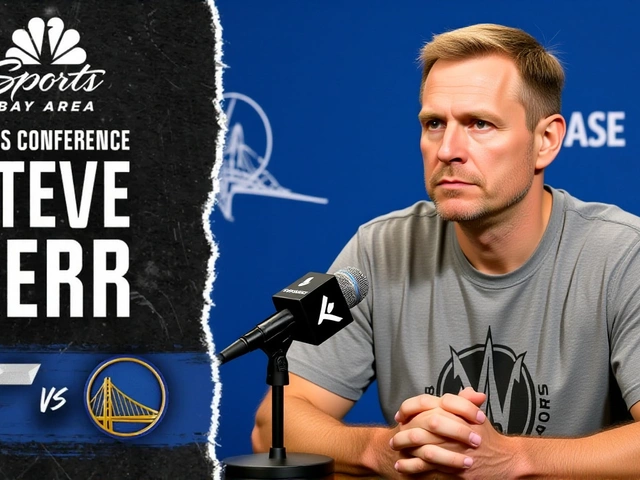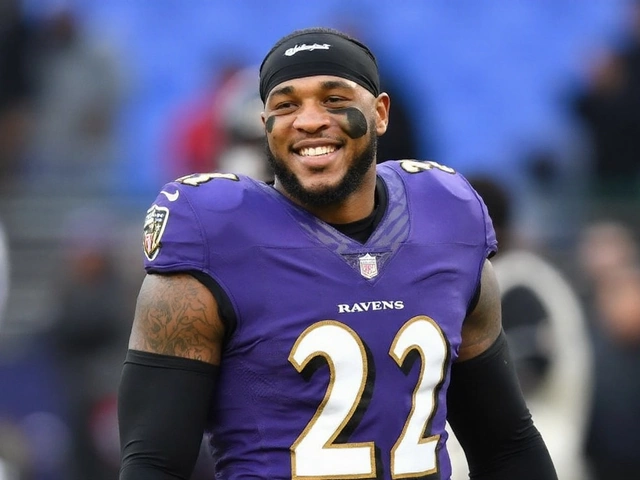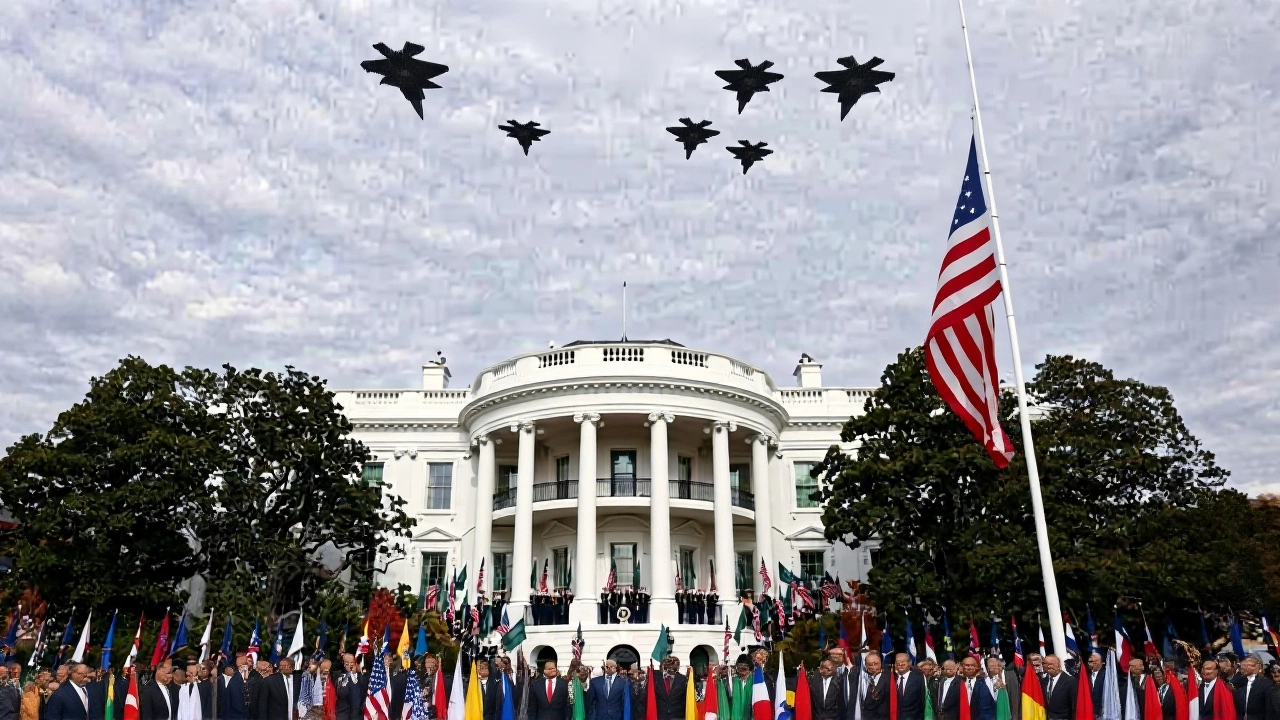
On Tuesday, November 18, 2025, Donald Trump welcomed Mohammed bin Salman, Crown Prince and Prime Minister of the Kingdom of Saudi Arabia, to the White House in a ceremony that signaled a dramatic thaw in U.S.-Saudi relations — seven years after the world learned of the brutal murder of journalist Jamal Khashoggi. The visit, the Saudi royal’s first to the White House since 2017, wasn’t just symbolic. It was a full-throated reset: tanks, nuclear deals, fighter jets, and $600 billion in promised investments — all wrapped in the glitter of an honor guard on horseback and fighter jets screaming overhead.
A New Chapter, Erasing the Past
The meeting began at 1600 GMT with a military display that felt more like a Hollywood premiere than a diplomatic event. A red carpet stretched across the South Lawn as U.S. Marines in dress blues stood at attention. A squadron of F-15s roared over the White House in a tight formation — a signal, unmistakable, that this was no ordinary guest. Inside the Oval Office, Trump didn’t just shake hands. He patted Mohammed bin Salman on the back like an old buddy, laughing as reporters tried to ask about Khashoggi. "We’re going to talk about the future, not the past," Trump said, cutting off a journalist mid-question. ABC News’ Matthew Lee reported Trump later "repeatedly insulted" the same reporter, calling him "unprofessional" for bringing up human rights.
It was a deliberate erasure. The 2018 killing of Khashoggi — a U.S. resident and Washington Post columnist — had been a diplomatic black hole. U.S. intelligence concluded the Crown Prince ordered the dismemberment inside the Saudi consulate in Istanbul. Sanctions followed. High-level visits stopped. Now, with a single sentence, Trump swept it aside. "He’s a tremendous statesman," Trump declared. No hesitation. No caveats.
Billions in Deals, Not Just Words
The substance behind the spectacle was staggering. During the closed-door lunch at 1715 GMT, the two leaders signed a defense pact committing Saudi Arabia to purchase nearly 300 M1A2 Abrams tanks from the United States. But that was just the appetizer. Trump confirmed the U.S. would move forward with a civilian nuclear cooperation agreement — a deal previously blocked over fears Saudi Arabia might weaponize nuclear technology. Israel had raised alarms. Now, those alarms were silenced.
Then came the big one: the designation of Saudi Arabia as a major non-NATO ally. The announcement came during a lavish East Room dinner, where Trump raised a glass to "a new era of partnership." Only 17 countries have ever received this status — including Japan, Australia, and Egypt. Saudi Arabia joins them not because of democracy, but because of oil, arms, and geopolitical muscle.
Trump also announced progress on F-35 fighter jet sales — the most advanced stealth aircraft in the U.S. arsenal — and access to U.S.-developed AI surveillance and defense systems. "Hundreds of billions," he said, "are already flowing into American infrastructure, manufacturing, and tech. The $600 billion pledge? It’s not just a promise anymore. It’s happening. Right now."
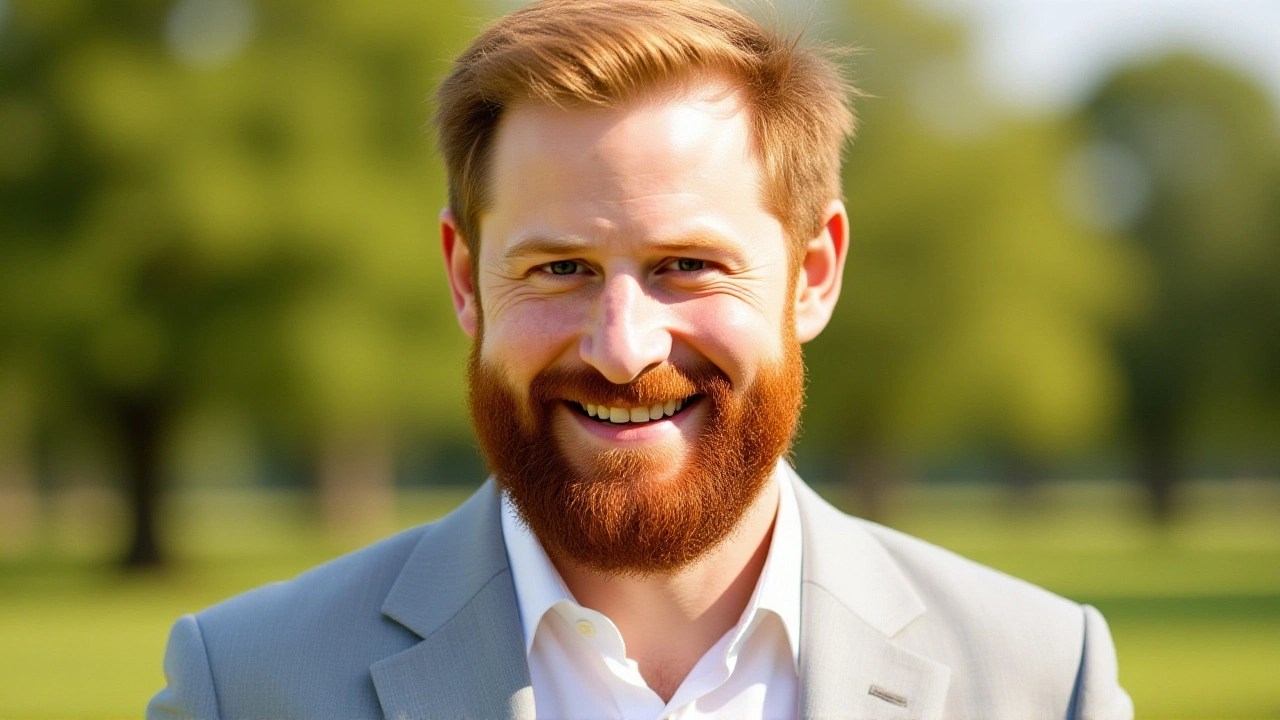
Why This Matters Beyond the Headlines
This isn’t just about tanks and nuclear deals. It’s about the future of the Middle East. The White House explicitly tied the visit to expanding the Abraham Accords, the U.S.-brokered normalization deals between Israel and Arab states. Saudi Arabia’s potential inclusion — long the holy grail of regional diplomacy — is now within reach. The Gaza ceasefire, fragile as it is, created the opening. Trump seized it.
But here’s the twist: while Trump celebrated economic and military gains, human rights groups recoiled. Amnesty International called the nuclear deal "a dangerous gamble," and Human Rights Watch noted that Saudi Arabia’s record on women’s rights, political prisoners, and press freedom remains among the worst in the world. "They’re not buying tanks," said one analyst in Riyadh. "They’re buying silence."
The Ripple Effect
Other nations are watching closely. If Saudi Arabia can walk away from Khashoggi with a nuclear deal and fighter jets, what message does that send to autocrats everywhere? Russia? China? Egypt? The precedent is clear: economic and military value now outweighs moral accountability in Washington’s calculus.
Domestically, the move energized Trump’s base. Defense contractors like Lockheed Martin and General Dynamics saw their stock prices surge. Meanwhile, Democrats in Congress are scrambling. Senator Chris Murphy called the nuclear deal "a betrayal of American values," and vowed to introduce legislation to block funding. But with Trump in the White House, and Republicans holding the Senate, that legislation has zero chance.
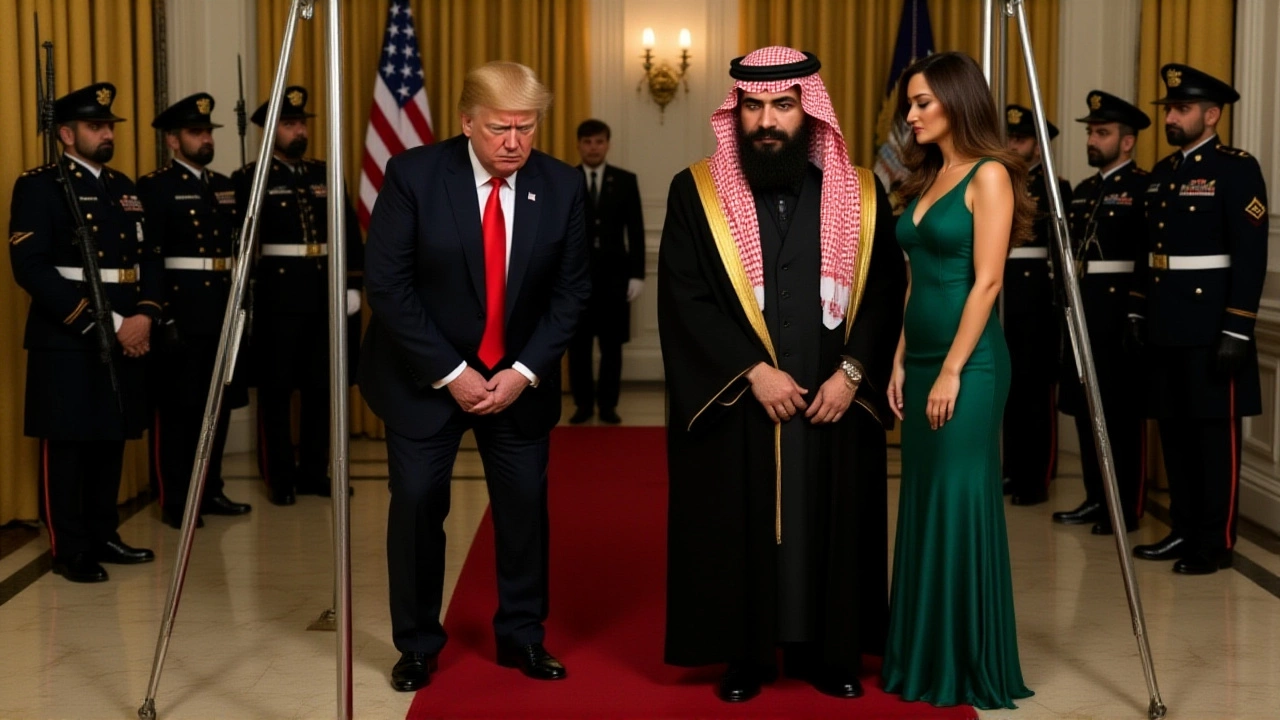
What’s Next?
The next 90 days will be critical. Saudi officials are expected to send a delegation to Washington to finalize the nuclear cooperation framework. Talks on F-35 delivery timelines begin in December. And behind closed doors, U.S. diplomats are quietly negotiating Saudi Arabia’s formal entry into the Abraham Accords — potentially reshaping the entire regional balance of power.
One thing is certain: the era of U.S. conditional engagement with Saudi Arabia is over. In its place? A transactional alliance, built on oil, weapons, and the quiet acceptance of a brutal past.
Frequently Asked Questions
Why did Trump ignore the Khashoggi murder during the meeting?
Trump has consistently prioritized economic and strategic interests over human rights in foreign policy. By brushing aside Khashoggi, he signaled that the U.S. is willing to overlook past abuses if Saudi Arabia delivers on defense contracts and investments — a pattern seen in his first term with China and Turkey. The White House framed the decision as "looking forward," but critics argue it undermines decades of U.S. advocacy for press freedom and accountability.
What does "major non-NATO ally" actually mean for Saudi Arabia?
It grants Saudi Arabia preferential access to U.S. military equipment, joint research programs, and logistics support — without requiring NATO membership. Countries like Australia and Egypt have used this status to modernize their militaries. For Saudi Arabia, it unlocks F-35 sales, advanced missile systems, and intelligence-sharing agreements previously restricted. It’s a status reserved for nations the U.S. deems indispensable to its global security strategy — regardless of their domestic policies.
How does this affect U.S.-Israel relations?
Israel has long opposed U.S. nuclear cooperation with Saudi Arabia, fearing it could trigger a regional arms race. While Israel publicly welcomed the Abraham Accords expansion, privately, officials expressed alarm. The U.S. has promised "strict safeguards" on nuclear technology, but experts warn that enrichment capabilities could be repurposed. Israel may now accelerate its own defense partnerships with India and the UAE to counterbalance the shift.
Is the $600 billion investment pledge realistic?
The figure was first announced in 2017 but saw minimal fulfillment. This time, Trump claims the money is already flowing — into U.S. infrastructure, tech startups, and energy projects. While Saudi sovereign wealth funds have committed over $100 billion since 2023, $600 billion remains ambitious. Analysts note much of the funding may be speculative or tied to future projects. Still, even half that amount would make Saudi Arabia the largest foreign investor in the U.S. since China in the 2000s.
What’s the connection between this meeting and the Gaza ceasefire?
The Gaza ceasefire, brokered in late 2024, created political space for Saudi Arabia to re-engage diplomatically. With Iran’s influence temporarily checked and Hamas weakened, the U.S. saw an opportunity to bring Saudi Arabia into the Abraham Accords fold. Saudi leaders have long demanded progress on Palestinian statehood as a condition for normalization. Trump’s administration has signaled flexibility on that front, making the White House meeting a strategic pivot — linking peace in Gaza to a broader regional realignment.
How did the U.S. public react to the meeting?
Public opinion was sharply divided. A Morning Consult poll released November 20 showed 62% of Republicans supported the deal, citing economic benefits. But among Democrats, 73% disapproved, with 58% calling it a "moral failure." Younger voters, particularly those under 30, were the most critical — 68% said the U.S. should not normalize relations without accountability for Khashoggi. Social media trends like #KhashoggiWasNotForgotten trended globally, highlighting a generational rift over foreign policy ethics.
